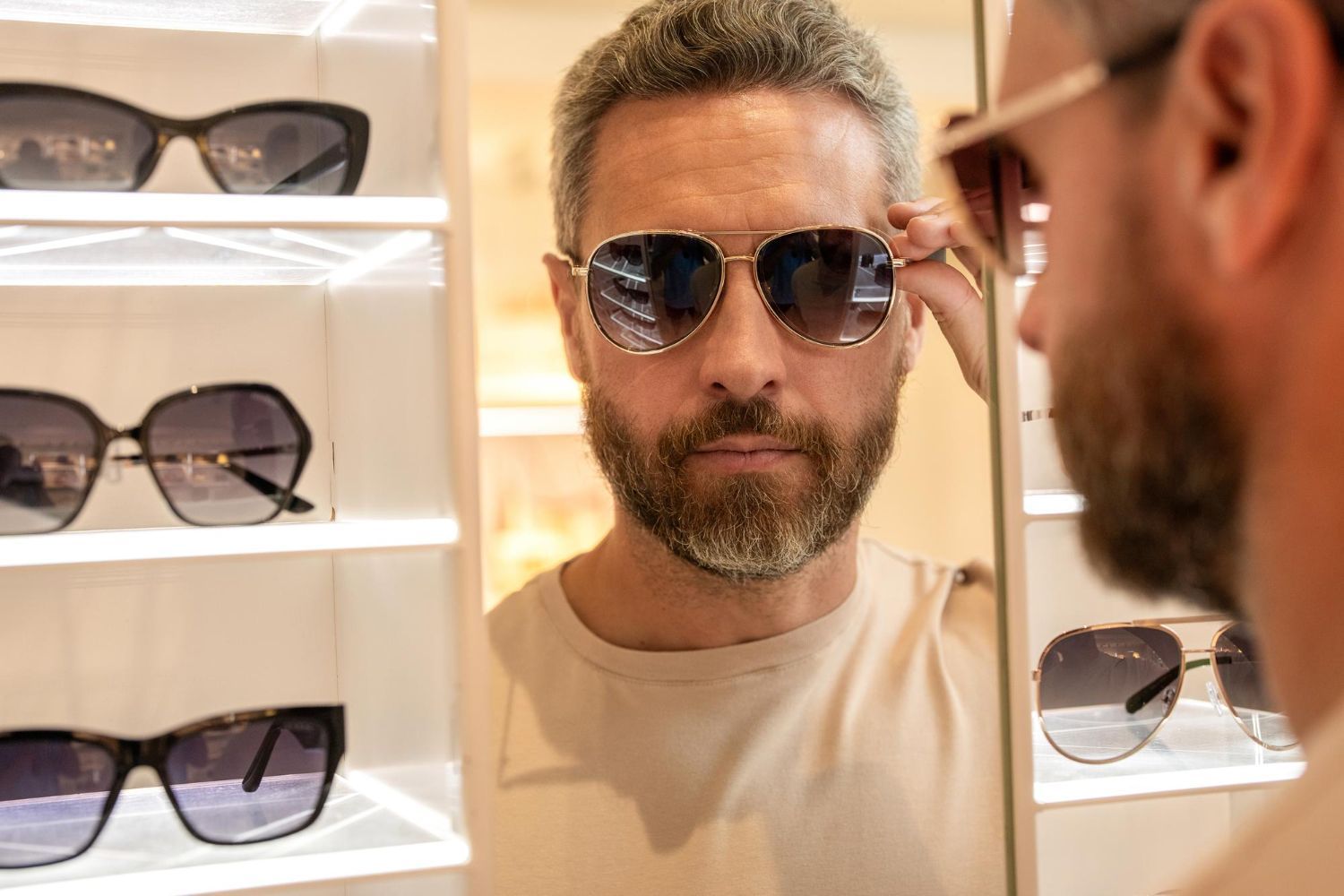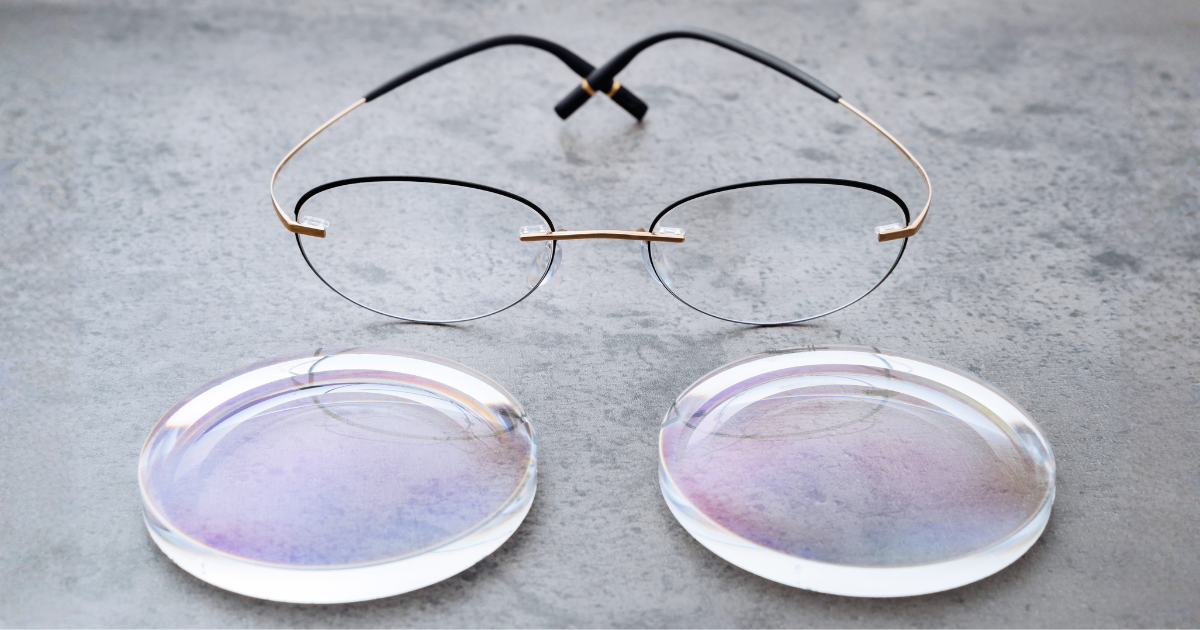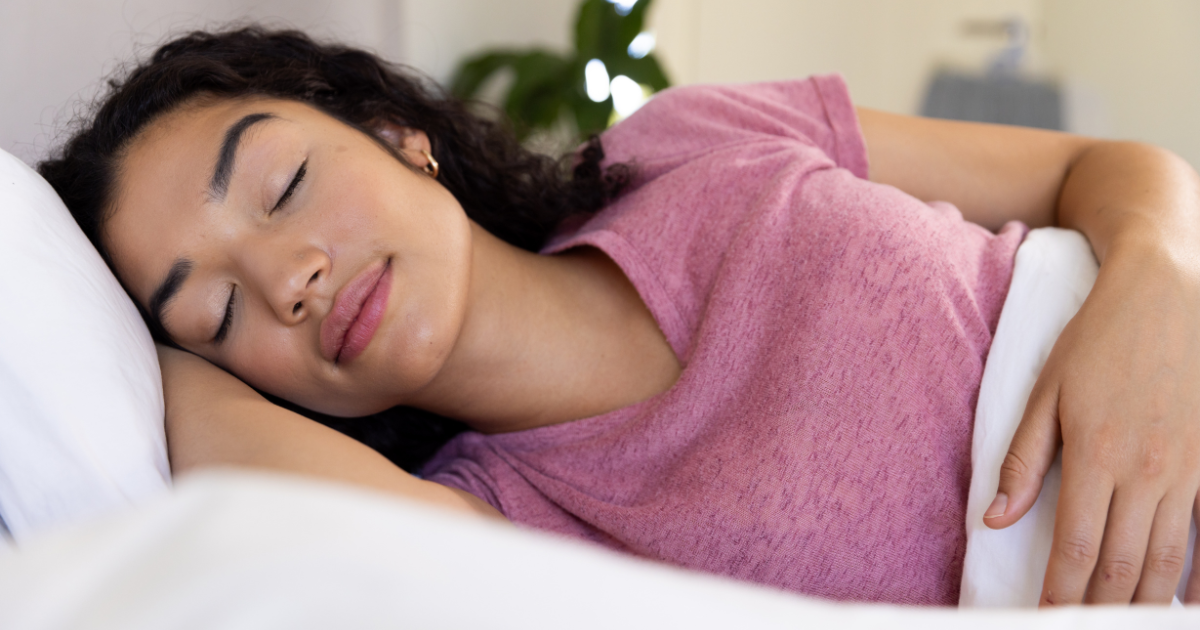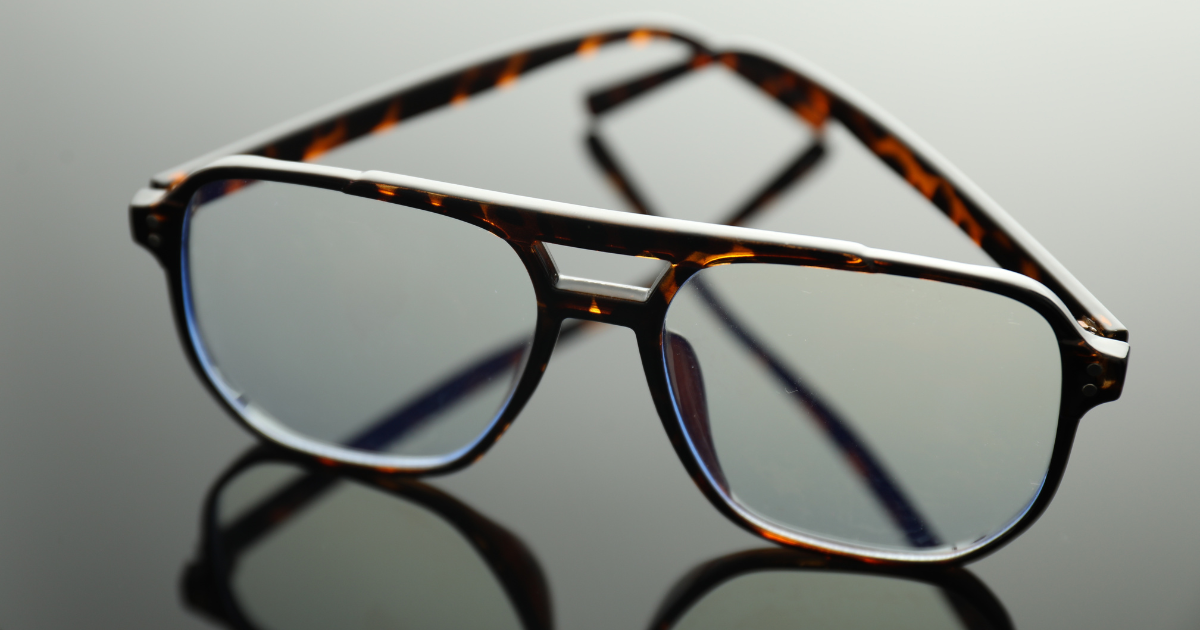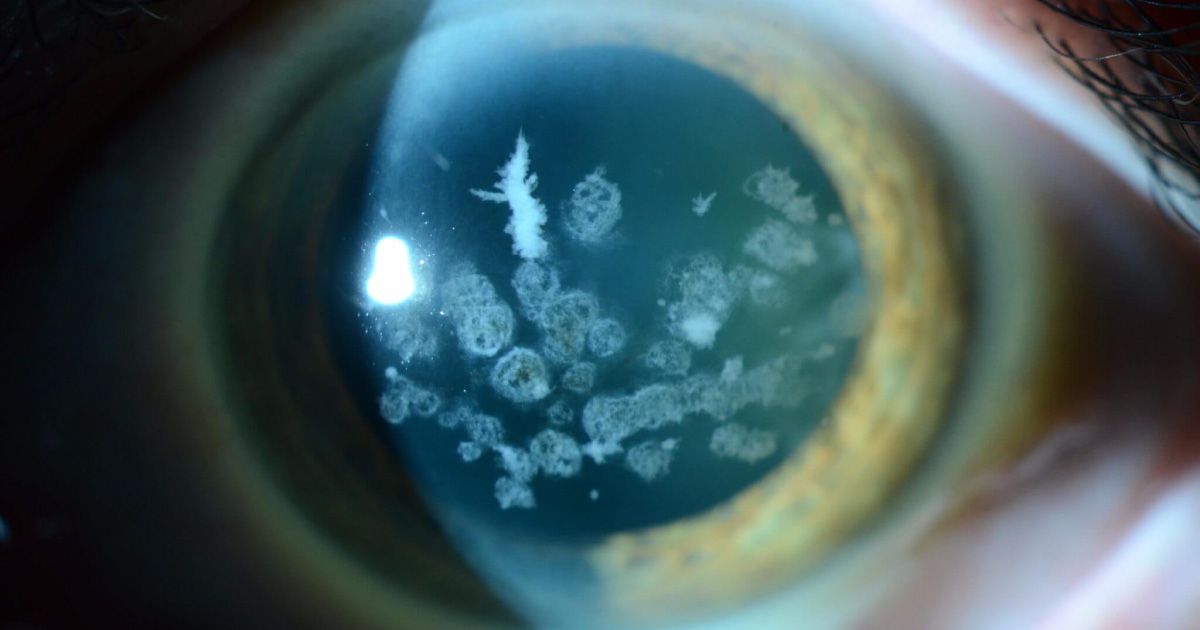Seeing Clearly Through Menopause

Read time: 3 minutes
Menopause, the natural transition marking the end of a woman's reproductive years, brings about a cascade of hormonal changes. While hot flashes and night sweats are often the first symptoms that come to mind, many women also experience a decline in vision quality during this time.
Throughout history, observations of changes in vision during pregnancy hinted at a deeper connection between hormones and eye function. In the modern era, advancements in endocrinology shed light on the pivotal roles estrogen and progesterone play in maintaining ocular health. However, during menopause, the decline in these hormones can disrupt the delicate balance, leading to various vision-related issues.
The Hormonal Shift: How Menopause Affects Your Eyes
During menopause, the ovaries significantly reduce their production of estrogen and progesterone. This hormonal shift can impact the health and function of various eye structures, leading to some vision changes.
Here's a closer look:
- Dry Eyes: Estrogen plays a crucial role in tear production. A decrease in estrogen levels can lead to dry, itchy, and irritated eyes, a condition known as dry eye syndrome. This can cause blurry vision, burning sensations, and discomfort, especially during extended screen time.
- Changes in Cornea Shape: The cornea, the clear dome at the front of the eye, helps focus light onto the retina. Hormonal fluctuations can slightly alter the shape of the cornea, leading to temporary changes in vision clarity. This may result in the need for updated eyeglasses or contact lens prescriptions.
Beyond these immediate concerns, menopause also introduces an increased risk of age-related macular degeneration (AMD), a leading cause of vision loss in older adults. While the exact mechanisms remain under investigation, studies suggest a correlation between postmenopausal status and elevated AMD risk, emphasizing the importance of proactive eye care during this life stage.
The Signs, Symptoms, and Treatment Options
Recognizing the signs and symptoms of menopause-related vision changes is crucial for early intervention and management. Here are some common signs and symptoms that may indicate menopause-related vision changes:
- Blurred vision, especially at near distances
- Fluctuating vision throughout the day
- Increased difficulty seeing in low light conditions
- Dry, itchy, and irritated eyes
- Eye strain and discomfort after screen time
- Increased sensitivity to light
- Headaches associated with vision issues
Fortunately, a range of strategies exists to mitigate menopause-related vision challenges and maintain optimal eye health. Treatment options include:
- Artificial Tears: Lubricating eye drops can significantly alleviate dry eye symptoms and provide comfort. Choose preservative-free options for optimal benefit.
- Dietary Changes: Omega-3 fatty acids, found in fatty fish and flaxseeds, may contribute to tear production and overall eye health. Consider incorporating these foods into your diet
- Regular Eye Exams: Scheduling regular eye exams with your optometrist is crucial. They can assess the health of your eyes, measure changes in your cornea, and adjust your prescription if needed.
- Lifestyle Modifications: Reducing screen time, taking breaks from close work, and prioritizing adequate sleep can all contribute to improved eye comfort and vision clarity.
- Hormone Replacement Therapy (HRT): While not suitable for everyone, HRT, under the guidance of a physician, may help alleviate menopause symptoms like dry eyes. Discuss this option with your doctor to determine if it's right for you.
Embracing a holistic approach to eye care during menopause involves addressing lifestyle factors such as hydration, stress management, and smoking cessation. By prioritizing self-care and seeking guidance from trusted eye care providers, women can navigate the menopausal transition with confidence, preserving their visual clarity and overall well-being.
The Takeaway
Menopause is a natural part of a woman's life. While it can impact vision, proactive care and a collaborative approach with your optometrist can help you navigate this transition with minimal disruption. Here at Urban Optiks Optometry, we understand the unique challenges women face during menopause. Our team is dedicated to providing comprehensive eye care, addressing your specific concerns, and offering guidance on maintaining optimal eye health throughout your life.
Share this blog post on social or with a friend:
The information provided in this article is intended for general knowledge and educational purposes only and should not be construed as medical advice. It is strongly recommended to consult with an eye care professional for personalized recommendations and guidance regarding your individual needs and eye health concerns.
All of Urban Optiks Optometry's blog posts and articles contain information carefully curated from openly sourced materials available in the public domain. We strive to ensure the accuracy and relevance of the information provided. For a comprehensive understanding of our practices and to read our full disclosure statement, please click here.







